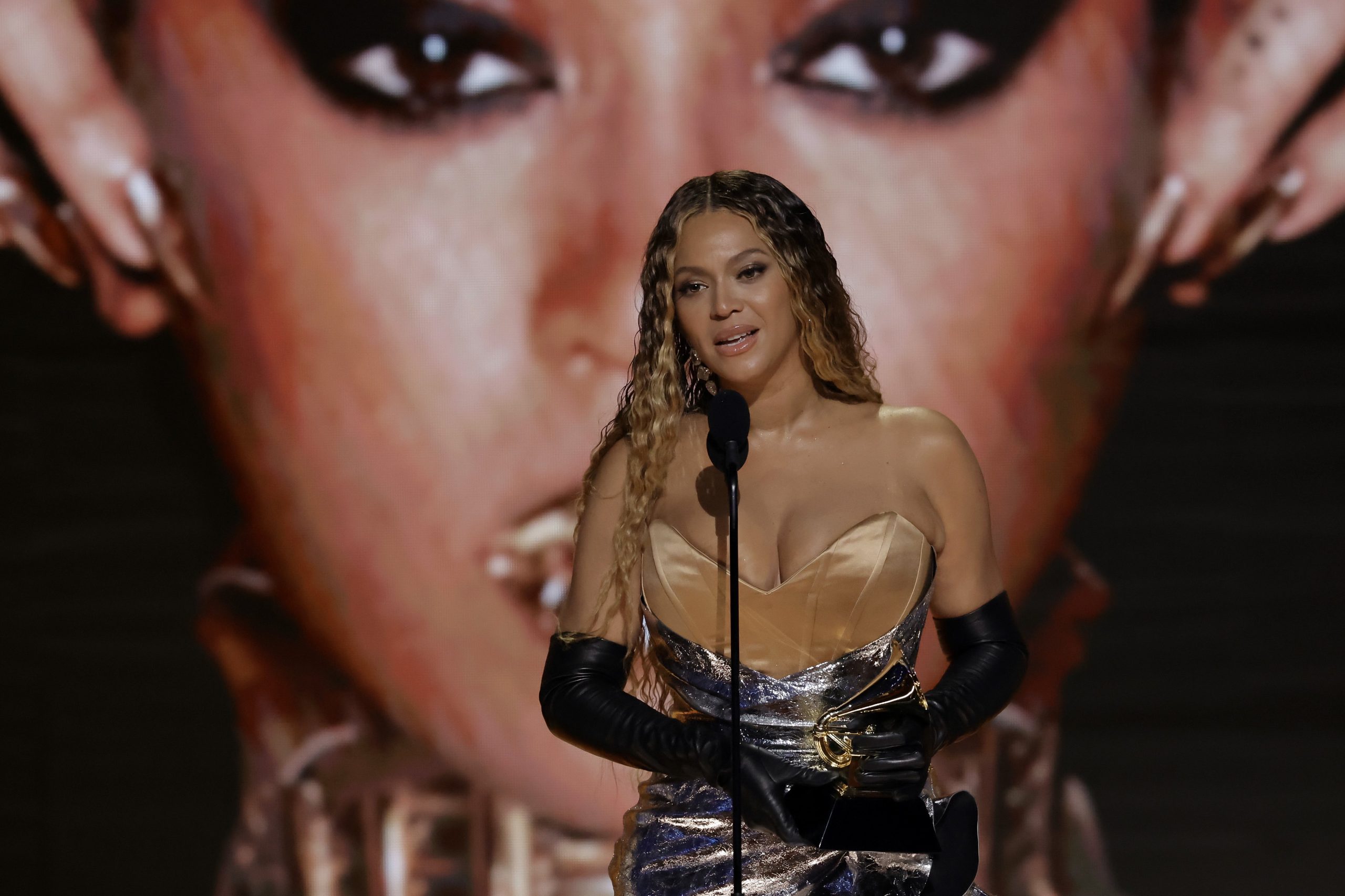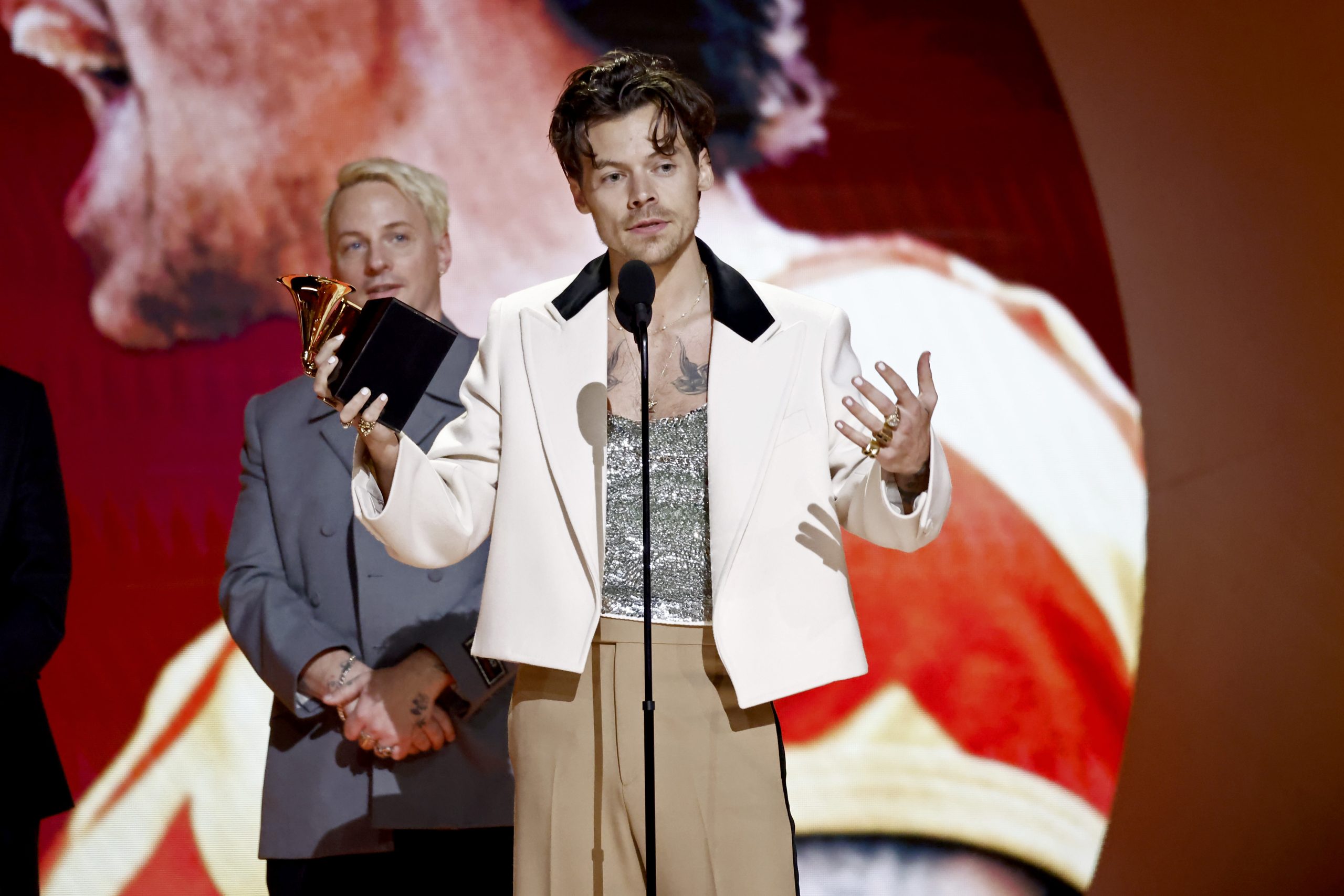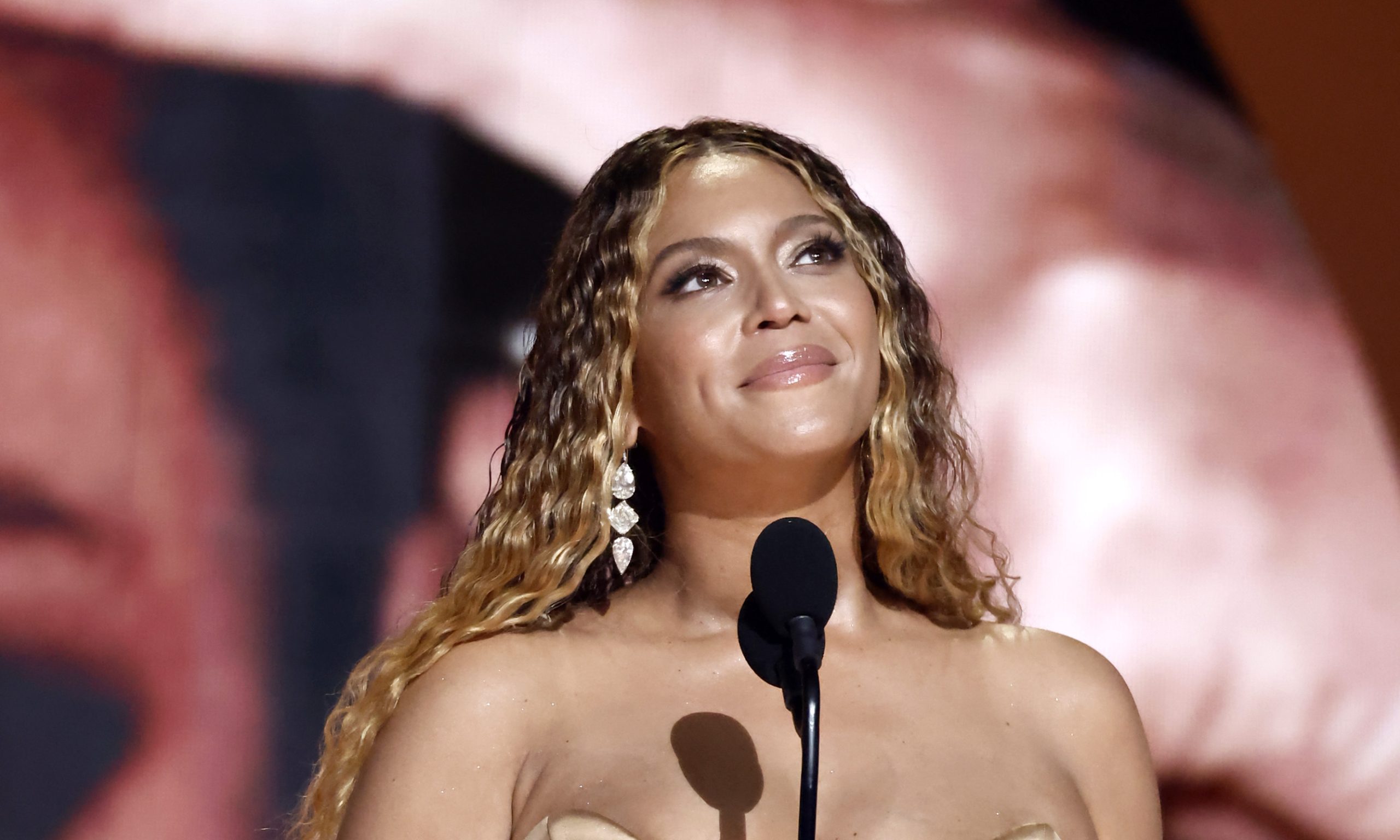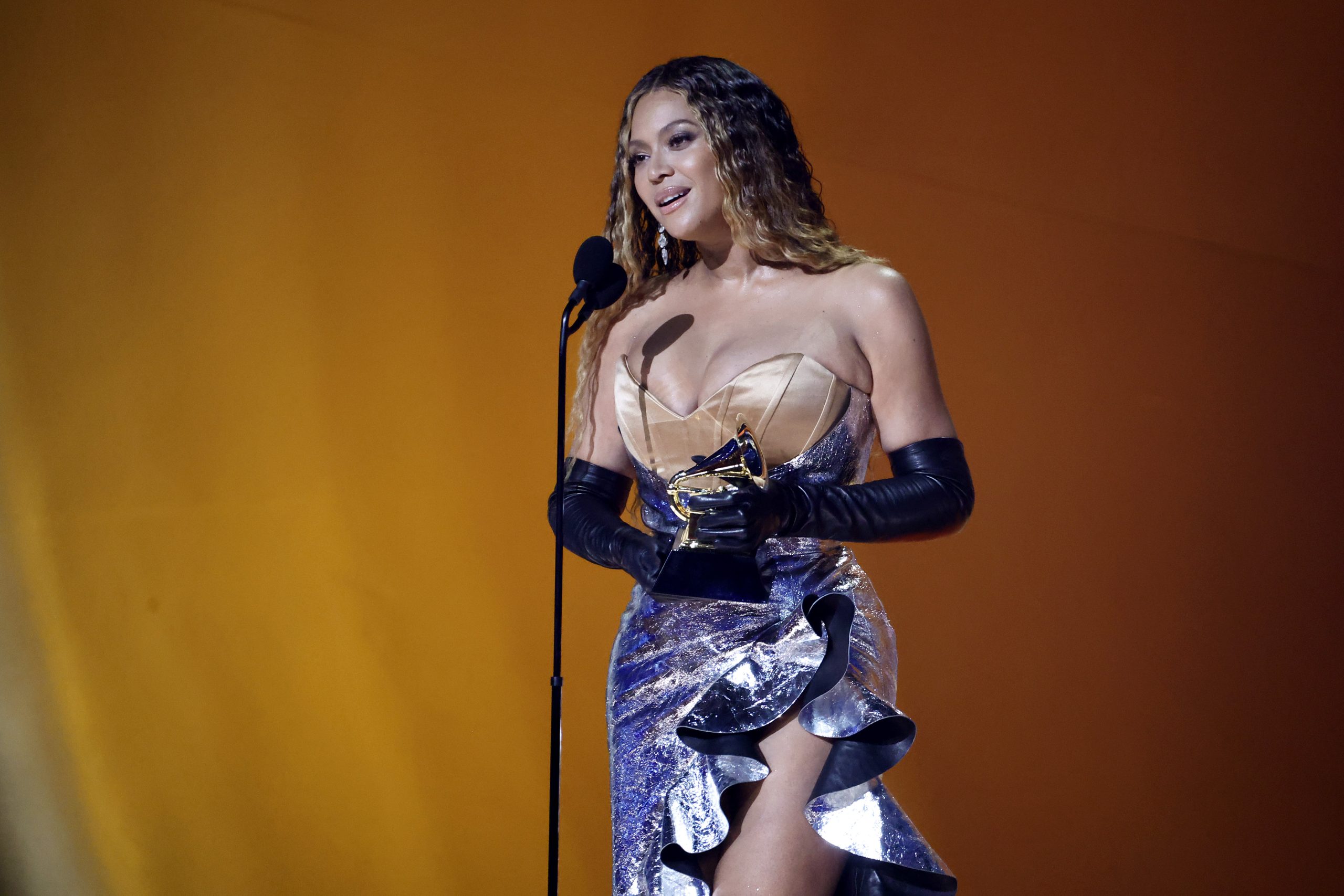It should have been Beyoncé’s year to shine. In truth, it should have been her year in 2010, with I Am… Sasha Fierce, in 2015, with her self-titled record, and 2017, with Lemonade, when she was again unjustly deprived of the Album of the Year award. Even though she now holds the record for the most Grammy Awards, having released seven widely revered studio albums in the last twenty years, one still questions why she’s never won the night’s most coveted prize.
While this year included a strong batch of nominees – with Beyoncé nominated alongside Adele, Bad Bunny, and Lizzo – the Grammys did what it does best and gave Album of the Year to the least risky, family-friendly option, Harry Styles. Harry’s House is an affable melodious affair, but this particular award belongs to Beyoncé with her pounding, all-killer-no-filler album, Renaissance.
Beyoncé didn’t go home empty-handed mind, as she won Grammys for best traditional RnB performance and best electronic dance recording for ‘Plastic Off the Sofa’ and ‘Break My Soul’, respectively. She also won another award in absentia – Best RnB Song for ‘Cuff It’ – with Trevor Noah telling the audience that Bey was stuck in traffic on her way to the ceremony, so legendary guitarist Nile Rodgers accepted the award on her behalf. But those should have been consolation prizes for the big moment she’s deserved her entire career.

Even other stars have notably clocked this. In 2017, Adele even used her acceptance speech to explain why Beyoncé should have won the award for Lemonade instead. “I can’t possibly accept this award,” Adele said on stage at the time. “The artist of my life is Beyoncé, and this album for me, the Lemonade album, was so monumental. Beyoncé, so monumental. It was so well thought-out and so beautiful and soul-baring. And we all got to see another side to you that you don’t always let us see.”
It’s particularly infuriating and bizarre that again, The Recording Academy overlooked Beyoncé on a night when the tremendous impact of Black musicians on the music industry was acknowledged. Her losses this year in the top three categories were discouraging, but not unexpected in an industry that’s created an atmosphere where the exclusion of Black artists is all too common.
In 2021, a USC Annenberg Inclusion Initiative study of the Grammy nominees from the previous nine years showed that black artists did not receive equal recognition in the four major categories: Record Of The Year, Album Of The Year, New Artist, and Song Of The Year, with only 24 percent of the nominations going to black artists, which was no different from the years prior.
But we know the statistics don’t tell the whole story. It’s been more than a decade-and-a-half since Herbie Hancock won Album of the Year award back in 2007 for a record honouring Joni Mitchell, River: The Joni Letters, and the last black woman to be given the accolade was Lauryn Hill in 1998. This reflects The Recording Academy’s failure to recognise boundary-breaking black musicians in major categories, thereby neglecting to acknowledge the influence African-American music has on the industry and society in general.

In his acceptance speech for album of the year, Harry Styles said: “I think – like on nights like tonight – it’s obviously so important for us to remember that there is no such thing as best in music”. Humble and well-said. But then he added, “This doesn’t happen to people like me very often, and this is so, so nice.”
This, coming from a white, heterosexual man (whose come in for his fair share of criticism over ‘queerbaiting’, using aspects of the queer community for commercial gain), seems somewhat underwhelming. A black female artist hasn’t been given the Album of the Year award since 1999, while many white male artists such as U2, Mumford and Sons, and Steely Dan have, and continue to receive, the honour in the intervening years. Let’s be real, even attendees at the ceremony were shocked Beyoncé didn’t win the Album of the Year award, with someone even yelling her name during Style’s acceptance speech.
While her snubbing for Album of the Year is frustrating for fans, critics, and anyone who’s seen how Beyoncé’s music can fuel and inspire social movements, Renaissance remains a masterpiece and Beyonce a living legend – with or without the stamp of a Grammy. The 16-track body of work has been described by many as a love letter to the black queer roots of dance music. She paid tribute to the previously unrecognised figures of the culture, celebrating her late Uncle Johnny with her strategic utilisation of visuals and sampling.
Her record’s aesthetic references the celebrated Harlem ballroom scene of the 1980s, which was dominated by black drag queens; and the album further draws on the works of queer heroes such as Grace Jones, Kevin Aviance, Big Freedia, DJ MikeQ, and Moi Renee.

Truly, this album is at the forefront of recalling the past to set the cultural trends of the present, and is unique from the other nominees for Album of the Year. If Beyoncé had been the recipient of the said award, it would have been an even more powerful acknowledgment of the black queer community in today’s socio-economic landscape.
This year’s selection of awardees and nominees illustrates the vastness of talent in the music industry, regardless of the type of music. Nonetheless, the reluctance to give the major awards to a woman who was labelled “the G.O.A.T.” during the show highlights the ongoing pattern of Grammy voters expressing their appreciation for the contribution of black artists, without backing it up with actual rewards.
Every year, The Recording Academy insists they are changing and contemplating how they can upgrade the awards process, such as the nomination assessment committees. However, there are still not sufficient women of colour being honoured in the four primary award categories. It’s shameful that the industry did not duly give recognition to Beyoncé for her culture-defining project.





1 Comment
A well-written argument here!